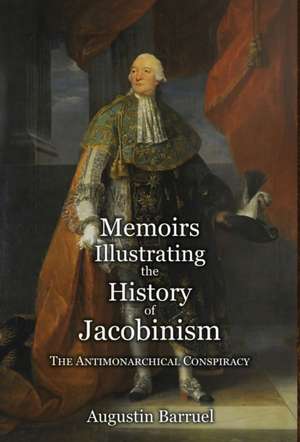Memoirs Illustrating the History of Jacobinism - Part 2
Autor Augustin Barruel Traducere de Robert Clifforden Limba Engleză Hardback – 6 mai 2021
Preț: 361.22 lei
Nou
Puncte Express: 542
Preț estimativ în valută:
69.13€ • 71.41$ • 57.53£
69.13€ • 71.41$ • 57.53£
Carte tipărită la comandă
Livrare economică 26 martie-09 aprilie
Preluare comenzi: 021 569.72.76
Specificații
ISBN-13: 9781999357320
ISBN-10: 1999357329
Pagini: 466
Dimensiuni: 140 x 216 x 30 mm
Greutate: 0.74 kg
Editura: Barclays Public Books
ISBN-10: 1999357329
Pagini: 466
Dimensiuni: 140 x 216 x 30 mm
Greutate: 0.74 kg
Editura: Barclays Public Books
Notă biografică
Augustin Barruel (1741 - 1820) was a prolific author and Jesuit priest born in France. He dedicated himself to literature after the suppression of the Society of Jesus and was exiled during the Revolution. While in London, he wrote Histoire du clergé, pendant la Révolution française (1793), which went through several editions and multiple translations, and strengthened British opposition to revolutionary principles. His best-known work, Mémoires pour servir à l'histoire du Jacobinisme (1797), established, along with John Robison's own contemporaneous book, the basis for the modern conspiracy theory of history. After the fall of the Directory, Barruel returned to France, where he defended the Napoleonic order. He ended his days engaged in a vigorous, Europe-wide controversy relating to his work, The Papal Power.
